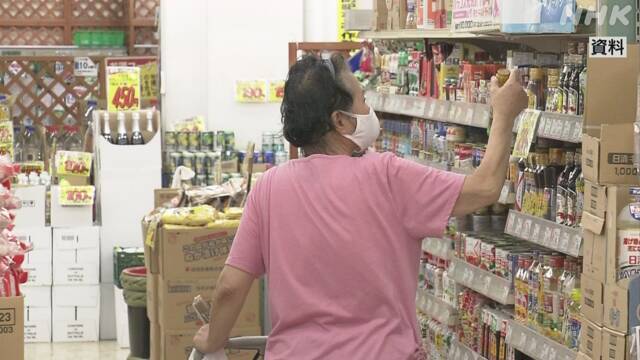Sales at major supermarkets across the country in August were 1.1056 trillion yen, an increase of 0.6% compared to the same month of the previous year when compared to existing stores, and an increase for two consecutive months.
Although the infection with the new coronavirus was spreading, there was no request from the government to restrict movement, and opportunities to go out increased, which meant that sales of clothing and other items increased.
On the other hand, with more opportunities to go out, demand for home-cooked meals decreased, and food sales were sluggish. It is said that there is a change in the way consumers shop, such as reducing the number of products they sell.
The Japan Chain Store Association, which conducted the survey, said, ``In addition to concerns about poor crops due to heavy rains this summer, it is expected that future sales will become even more difficult due to the effects of soaring prices and the depreciation of the yen. We will continue to monitor the situation."
Nationwide Department Store August Sales Positive for 6th Consecutive Month
According to the Japan Department Stores Association, sales at department stores nationwide in August exceeded the same month of the previous year by 26.1% compared to existing stores, marking the sixth consecutive month of positive growth.
The number of customers entering the store increased by 26.2% from the same month of the previous year due to the absence of national restrictions due to the spread of the new corona infection, and there was a last-minute demand before price increases for some luxury brands such as watches and bags. I'm assuming it's because of what happened.
On the other hand, overall sales are down more than 14% compared to three years ago before the spread of infection, and in particular, sales of inbound customers are down 64% compared to before the spread of infection.
The Japan Department Stores Association said, ``In order to make the most of the weak yen, we would like you to promote the attraction of inbound customers by relaxing border measures at the time of entry.''

